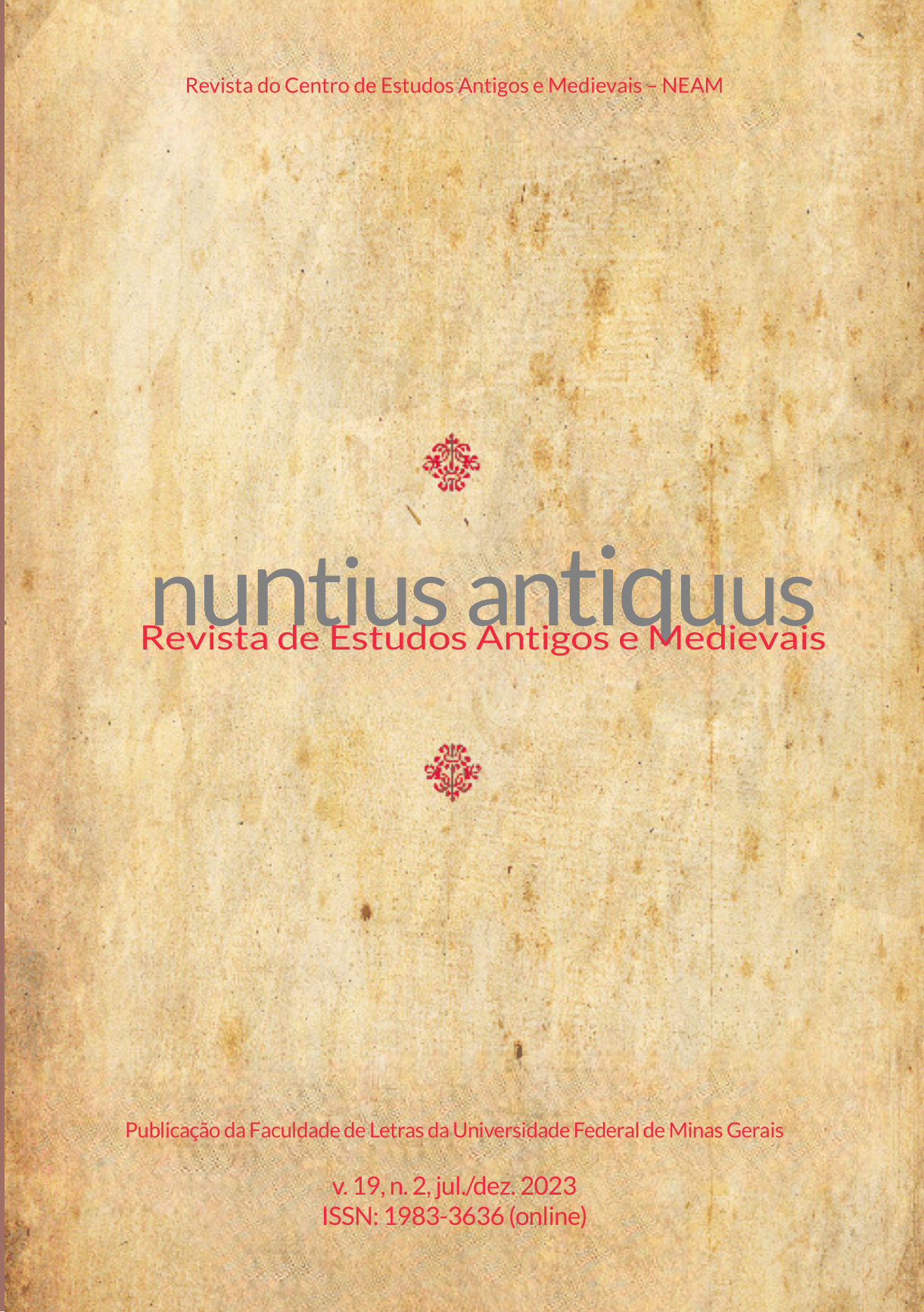Xenophon’s Subversive Socrates
A Reading of Memorabilia 4.1-4
Parole chiave:
law, piety, Socrates, theodicy, XenophonAbstract
This article argues that Xenophon’s conception of Socrates’ exemplary qualities, by which he sought to exonerate him of the charges of impiety and harming the youth, was not that of the average Athenian. The difference was such that someone who was pious in the way Xenophon represented Socrates as being might even appear to be impious to the majority of his fellow citizens. So too, what Xenophon described as Socrates’ benefits to others might have seemed quite otherwise, when measured by popular views. The article thus challenges the still prevailing image of Xenophon as a man of mediocre intelligence, who perhaps misunderstood Socrates, but was incapable of creating a picture of him that was coherent and informed by an original, and perhaps even accurate, vision of his teachings.
Downloads
Riferimenti bibliografici
BRANCACCI, A. Le concezioni di socrate nei capitoli teologici dei memorabili. Elenchos, v. 29, n. 2, p. 233-252, 2008.
BROADIE, S.; SATTLER, B. Socrates the bully? Rudeness and cooperation in the Protagoras. In: VIRTUAL SOCRATES COLLOQUIUM. Lecture delivered on 31 March 2021 under the auspices of the International Society for Socratic Studies. A recording of the lecture is available at: <https://www.youtube.com/watch?v=Q3JDHd9MDCQ>.
CHRIST, M. Xenophon and the Athenian Democracy: The Education of an Elite Citizenry. Cambridge: Cambridge University Press, 2020.
DANZIG, G. Xenophon’s Wicked Persian Or, What’s Wrong with Tissaphernes? Xenophon’s Views on Lying and Breaking Oaths. In: TUPLIN, C. J. (Org.). Persian responses: Political and Cultural Interaction with(in) the Achaemenid Empire. Swansea: Classical Press of Wales, 2007. p. 27-50.
DANZIG, G. Apologizing for Socrates: How Plato and Xenophon Created our Socrates. Lanham, MD: Lexington Books, 2010.
JOHNSON, D. M. Xenophon’s Socratic Works. London: Routledge, 2021.
LACHANCE, G. Xenophon and the Elenchos: A Formal and Comparative Analysis. In: DANZIG, G.; JOHNSON, D.; MORRISON, D. (Org.). Plato and Xenophon: Comparative Studies. Leiden: E. J. Brill, 2018. p. 165-183.
LEBEDEV, A. The Authorship of the Derveni Papyrus, A Sophistic Treatise on the Origin of Religion and Language: A Case for Prodicus of Ceos. In: VASSALLO, C. (Org.). Presocratics and Papyrological Tradition: A Philosophical Reappraisal of the Sources. Proceedings of the International Workshop held at the University of Trier (22–24 September 2016). Berlin: De Gruyter, 2019. p. 491-606.
MOORE, C. Xenophon’s Socratic Education in Memorabilia Book 4. In: STAVRU, A.; MOORE, C. (Org.). Socrates and the Socratic Dialogue. Leiden: E. J. Brill, 2018. p. 500-520.
MORRISON, D. Xenophon’s Socrates on the Just and the Lawful. Ancient Philosophy, v. 15, n. 2, p. 329-347, 1995.
SEDLEY, D. Creationism and Its Critics in Antiquity. Berkeley: University of California Press, 2007. (Sather Classical Lectures, 66). Review by: BYDÉN, B. Bryn Mawr Classical Review, 16 May 2009.
SEDLEY, D. N. Creationism and Its Critics in Antiquity. Berkeley: University of California Press, 2008a.
SEDLEY, D. N. Socrates’ Place in the History of Teleology. Elenchos, v. 29, n. 2, p. 317-334, 2008b.
SEEL, G. If You Know What is Best, You Do It: Socratic Intellectualism in Xenophon and Plato. In: JUDSON, L.; KARASMANIS V. (Org.). Remembering Socrates: Philosophical Essays. Oxford: Clarendon Press, 2006. p. 20-49.
VAN BERKEL, T. A. The Economics of Friendship: Conceptions of Reciprocity in Classical Greece, Leiden: E. J. Brill, 2019.
Downloads
Pubblicato
Come citare
Fascicolo
Sezione
Licenza
Copyright (c) 2024 David Konstan (Autor)

TQuesto lavoro è fornito con la licenza Creative Commons Attribuzione 4.0 Internazionale.





